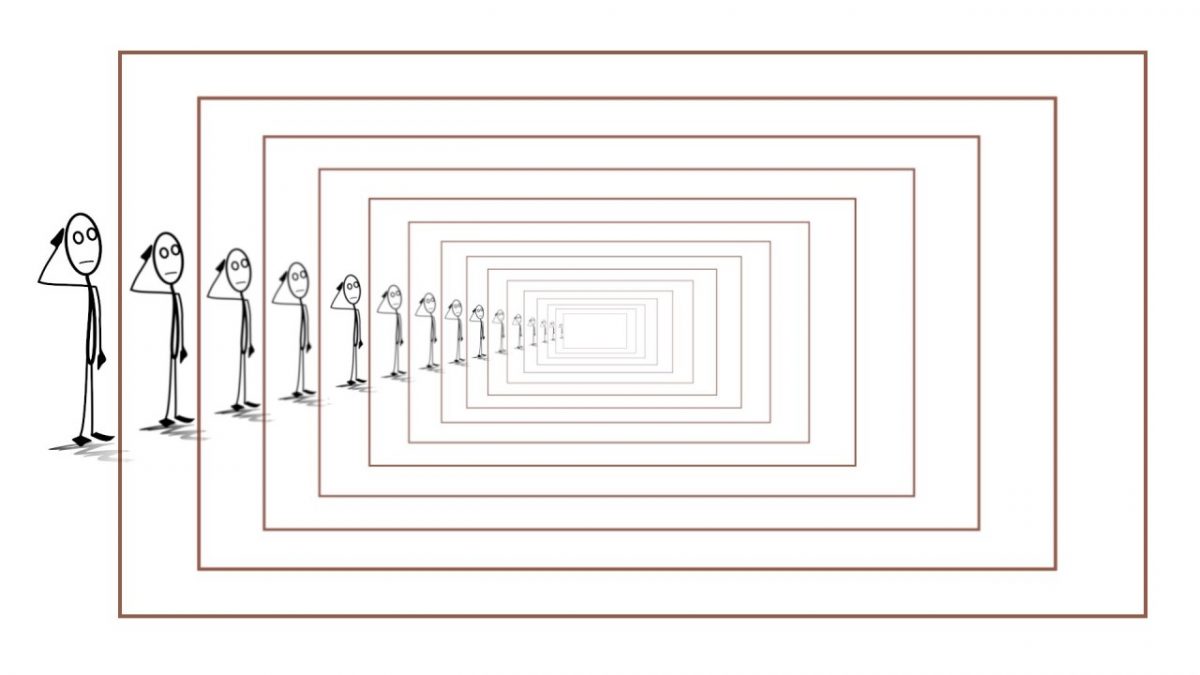Introduction
Recursion, as a mental model, unveils the concept of self-referential loops that play a significant role in decision-making processes. Grounded in human psychology, recursion is prevalent in our day-to-day lives and can impact the outcomes of our choices. By grasping this mental model, we can recognize its influence and understand how succumbing to recursion can lead to irrational decisions contrary to our best interests.
Defining Recursion and its Relevance in Decision-Making
Recursion refers to a process in which a concept or pattern refers back to itself in a self-referential manner. It involves the repetition of steps or ideas, where each iteration builds upon the previous one. In decision-making, recursion is relevant because it can create feedback loops that influence how we perceive, interpret, and evaluate information.
Recursion is deeply anchored in human psychology. Our brains naturally seek patterns and connections to make sense of the world, often relying on recursive thinking to simplify complex information. However, this recursive thinking can sometimes lead to biased and irrational decision-making, as we get trapped in self-referential loops without considering a broader context.
Examples of Recursion in Various Contexts
- Personal Life Decisions: Recursion can manifest in personal life decisions when individuals rely solely on their past experiences or limited perspectives. For instance, someone who had a negative experience with a romantic relationship may recursively generalize that all future relationships will be equally unsuccessful, resulting in a fear of commitment and missed opportunities for genuine connection.
- Business Scenarios: In business, recursion can be observed in decision-making processes. For example, a company might base its marketing strategies solely on previous successful campaigns without adapting to changing market dynamics. This recursive approach can lead to stagnation and missed opportunities, as the company fails to explore new and innovative strategies that align with evolving consumer preferences.
- Public Policy-Making: Recursion can impact public policy-making when decision-makers rely on outdated or ineffective policies due to their historical significance. This recursive thinking can prevent the adoption of more progressive and adaptable approaches that address contemporary societal challenges, leading to suboptimal outcomes for the public.
Mental Biases and Psychological Underpinnings
Several mental biases contribute to the occurrence of recursion in decision-making. Anchoring bias can lead individuals to fixate on a particular starting point or reference, preventing them from exploring alternative perspectives or considering a broader context. Availability bias can also influence recursive thinking, as individuals rely heavily on readily available information or examples, rather than conducting a comprehensive analysis.
Furthermore, confirmation bias plays a role in reinforcing recursion, as individuals tend to seek information that confirms their existing beliefs or patterns. This bias perpetuates the self-referential loops, hindering objective decision-making and stifling innovation.
Identifying and Mitigating Recursion
To avoid succumbing to recursion and making irrational decisions, it is crucial to develop self-awareness and employ strategies to mitigate its effects. Here are practical tips to identify and avoid this mental trap:
- Seek Diverse Perspectives: Actively seek out diverse viewpoints and feedback. Engage with individuals who hold different beliefs and challenge your assumptions. This helps break free from recursive thinking and fosters a more well-rounded understanding of the situation.
- Embrace Systems Thinking: Adopt a systems thinking approach to decision-making. Consider the interdependencies and interconnectedness of various factors, rather than focusing on isolated components. This broader perspective helps break recursive loops and encourages more holistic decision-making.
- Engage in Critical Reflection: Regularly reflect on your decision-making processes and biases. Question your assumptions and explore alternative explanations or approaches. Cultivate a habit of critical self-reflection to identify recursive patterns and challenge them.
- Experiment and Iterate: Embrace an experimental mindset and be willing to iterate on your decisions. Encourage a culture of innovation and continuous improvement, where recursive thinking is replaced by adaptive and flexible approaches.
Conclusion
Recursion, as a mental model, highlights the potential pitfalls of self-referential loops in decision-making. By understanding its dynamics and the biases that contribute to recursive thinking, we can make more informed choices aligned with our long-term interests. Through self-awareness, seeking diverse perspectives, embracing systems thinking, and fostering an experimental mindset, we can mitigate the negative effects of recursion and make decisions that lead to positive outcomes.
